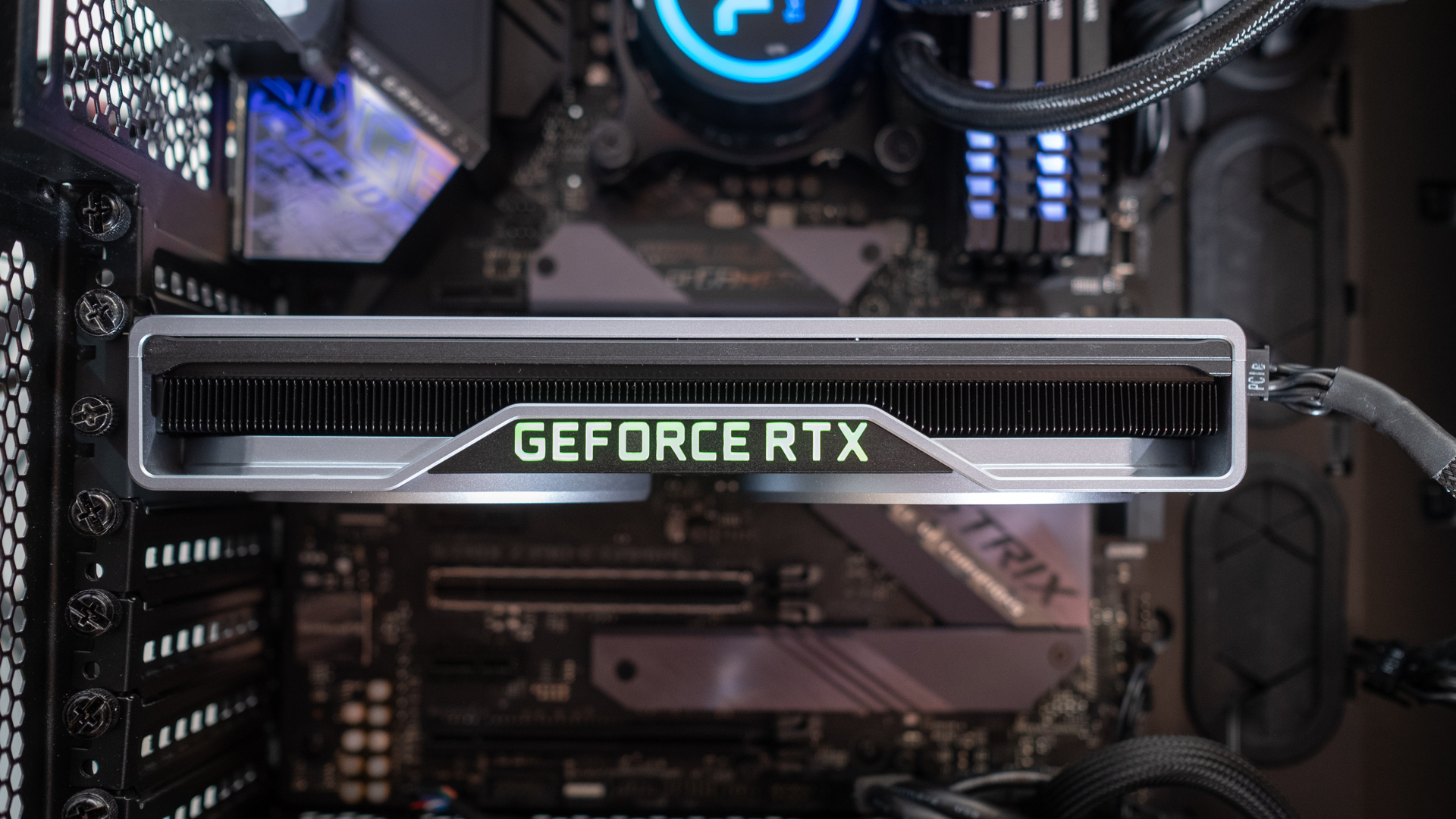Nvidia RTX 2060 12GB won’t have Founders Edition, sparking price concerns
Third-party card makers only, but will they push for profit above recommended pricing?

Nvidia’s refresh of the RTX 2060 with 12GB of RAM (and pepped-up specs elsewhere) won’t have a Founders Edition, after a rather confusing apparent reversal of course: Team Green listed the GPU on its site and then quickly removed it, confirming that it won’t make its own model.
Let’s break this down step-by-step. Nvidia’s revamped RTX 2060 was first spotted when it was mentioned in its drivers, effectively confirming its existence, before Team Green made an official – but very low-key – announcement to the press (as VideoCardz reports), putting up the specs of the graphics card on its website.
Nvidia issued the following statement to the press: “The price will vary depending on the specific model and region. It is a premium version of the RTX 2060 6GB and we expect the price to reflect that. Please contact our AIC [Add-in Card, meaning graphics card] partners for specific product details and pricing.”
Then, as Tech Powerup subsequently spotted, the specs and any mention of the new RTX 2060 Founders Edition card were removed from the Nvidia site.
Nvidia then confirmed to Tech Powerup that there won’t be a Founders Edition of the RTX 2060 12GB after all, and the only boards that will be produced are custom designs by various board partners. In other words, the usual third-party card makers such as Asus, Gigabyte, MSI and so on.
The RTX 2060 will offer not just 12GB of VRAM – double the 6GB of the original Turing card – but will also up the CUDA cores to 2,176 (from 1,920), which is the same amount the RTX 2060 Super has.
Indeed, the RTX 2060 Super only has 8GB of video memory, but uses a 256-bit memory bus, whereas the new 2060 has a 192-bit bus. So, in short, the refreshed RTX 2060 has more, but slower, memory. With clocks pitched around the same level, the expectation is that this new spin on the RTX 2060 will probably have performance on a par with (or close to) the RTX 2060 Super.
Get daily insight, inspiration and deals in your inbox
Sign up for breaking news, reviews, opinion, top tech deals, and more.
This spec was previously predicted by the rumor mill, which turned out to be spot on in this case. The card launches on December 7.
Analysis: Turning to Turing – will it work out?
While the performance represents an attractive enough proposition for 1080p gaming, the potential worry is the pricing of the new RTX 2060. With no Founders Edition graphics card coming at a straight recommended price from Nvidia, buyers will have to pick up models from third-party card makers. These manufacturers can set the price level wherever they wish – and given the levels of demand for any GPU right now, whether high-end or low-end, these companies know they can push for a premium.
While going back to the previous-gen Turing tech is essentially Nvidia’s workaround to be able to get more cards to the market – apparently using 12nm chips from TSMC, for which there’s obviously less demand compared to more cutting-edge silicon – there are still concerns about availability levels, and of course scalpers getting in on the act to further inflate prices.
We can but hope that this solid enough remake of the RTX 2060 is seen in decent quantities thanks to relying on 12nm capacity at TSMC (in theory). Without doubt it’s certainly odd the way this announcement has unfolded, being very much under the radar, with the card appearing on the official Nvidia site and then being yanked down like that – not something we’ve ever encountered before.
Darren is a freelancer writing news and features for TechRadar (and occasionally T3) across a broad range of computing topics including CPUs, GPUs, various other hardware, VPNs, antivirus and more. He has written about tech for the best part of three decades, and writes books in his spare time (his debut novel - 'I Know What You Did Last Supper' - was published by Hachette UK in 2013).